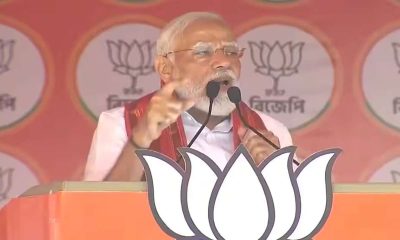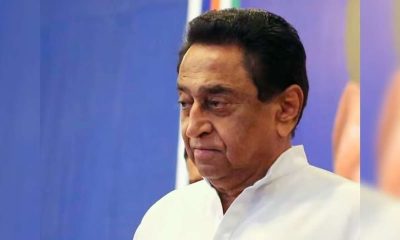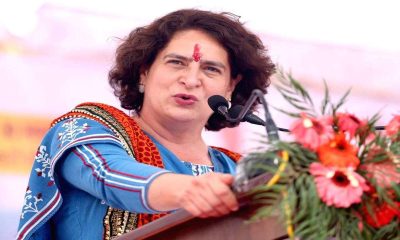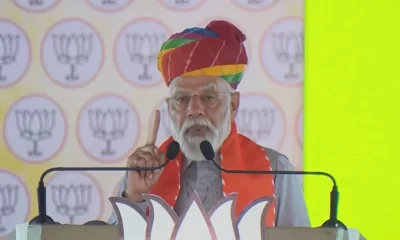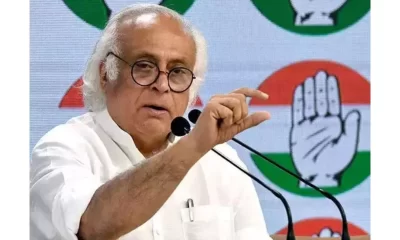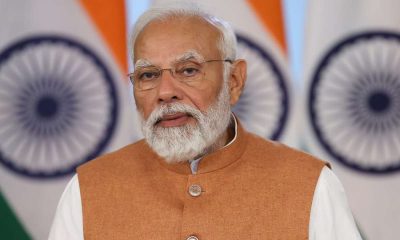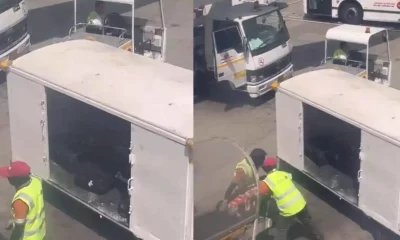Latest world news
Meeting Deng Xiaoping on Rajiv Gandhi’s history-making visit to China

[vc_row][vc_column][vc_column_text]Mao, Deng and now Xi Jinping. Three of the most powerful leaders in Chinese history. It was Deng Xiaoping who paved the way for Xi to become as dominant a force as he himself was. Dilip Bobb recounts a memorable meeting with Deng in Beijing.
The just-concluded Congress of the Communist Party of China has cemented President Xi Jinping’s place in history as the most powerful leader of the country since Deng Xiaoping. It signposts the end of the Deng Xiaoping era and the beginning of the New Era led by Xi. For veterans like me who were privileged to have an audience with Deng, it brings back memories of the iconic status he enjoyed and the roadmap he laid out which has led to China – and Xi – being where they are at this inflection point in history.
I met the legendary revolutionary on a freezing January morning in 1989 as part of the media delegation accompanying then Prime Minister Rajiv Gandhi on his history-making visit to China. Being bundled up in layers of wool and thermal, heavy boots and woolen caps covering most of the face, left very little scope for individuality. Luckily, the meeting between Deng and Rajiv followed by a brief reception-line encounter with us lowly scribes was held in the Great Hall of the People, the massive building at one end of Tiananmen Square in Beijing, which had central heating. Chinese officials had briefed us on protocol, distance to be maintained (no handshakes, just a bow or a namaste) and other restrictions to do with his advanced age –he was 84. The briefing and the reverence in their voices when mentioning the ‘Paramount Leader’ made it seem like we were being given an audience with God. In communist, hence atheist, China, Deng was as close to God as anyone could get. His advanced age meant he still had the authority but had become more of a father figure with little official responsibility in the day-to-day affairs of the country.
Still, the veneration and respect with which he was regarded in China had added considerable hype and expectation to the first handshake between an Indian prime minister and the unquestioned leader of China on a bilateral visit. Nehru and Mao had a finger-wagging meeting, but at the Bandung conference in 1954. Since 1961, relations between India and China had been even more frigid than that January morning in Beijing. The Rajiv-Deng meeting represented the potential for a historic breakthrough, or, at the very least, a breach in the Great Wall. There was a discernible sense of history in the making when the two delegations gathered at opposite ends of the ornate and cavernous Great Hall. Rajiv and his official delegation had entered and waited for the Paramount Leader. We, the media clutch, were herded into a corner but with a clear view of the proceedings. Then Deng emerged, disappointingly frail and wizened, but the air of authority around him was unmistakable. The two leaders walked slowly towards each other, Rajiv on his own, while Deng had two aides on either side.
If Rajiv deserves credit for taking the gamble of flying blind to Beijing, it was the all-powerful Deng who orchestrated the turning point during his emotion-charged meeting with Rajiv, a man half his age. The tension in the air was almost touchable as the two leaders converged. Deng, the famous pudding face animated by a twinkle in the eyes, shuffled forward, then stopped, realising Rajiv was still some distance away. The make-or-break enormity of the occasion was reflected in Rajiv’s body language as he moved hesitantly forward, exuding a certain nervousness. Throughout the three-minute-long handshake, he remained unsure and overawed, answering in monosyllables as Deng rambled into reminiscence. In China, however, symbols and semantics are infinitely more important than official declarations. Deng’s opening remarks welcoming his “young friend” and suggesting they “forget the past” was an overt indication that he was literally holding out a hand of friendship. And the next few minutes of their meeting was broadcast through loudspeakers, not so much for the benefit of the world media as for China’s one billion people.
The fact that he spent 90 minutes with Rajiv discussing the changing international scenario and his vision of the balance of power was another signal. A semi-recluse, Deng rarely spends over 30 minutes with visiting leaders. Thus, without actually saying so, Deng was giving his blessings to a burial of the past and the start of another Long March towards normalisation of Sino-Indian relations. After that meet, my brief encounter with Deng was an anti-climax. We shuffled forward in a line, each person pausing for a few seconds to greet the man we had only read about in history books. He would look you in the eye, nod slightly as you were introduced, and then you made way for the next in line. His hands were frail and trembled slightly so the no-handshake rule was logical. Yet, walking away, one could not shrug off the feeling of having just been part of history, even if it was a bit part. Looking back, it is clearer to see the roadmap that Deng left for his successor (Xi was then a regional party chief in Fujian). Deng would die in 1997 but by the time we met him, he had already laid out the essential action plan for China which had just come through the disastrous Cultural Revolution. Called the 24 character strategy, the plan enjoined the Chinese to “observe calmly, secure our position, cope with affairs calmly, hide our capacities, bide our time, be good at maintaining a low profile, never claim leadership.” In other words, China should focus on transforming its economy and keep a low profile in international politics. Towards this end, he advocated the Four Modernisations – of agriculture, industry, science and technology and defence. China adhered to these guidelines with spectacular results and catapulted the opportunistic Xi Jinping to a position where he is now part of the Great Triumvirate of China. [/vc_column_text][/vc_column][/vc_row]
Latest world news
World Earth Day 2024: Google Doodle showcases aerial view of planet’s natural beauty
Google celebrated Earth Day 2024 with a special doodle featuring an aerial view of our planet’s biodiversity.
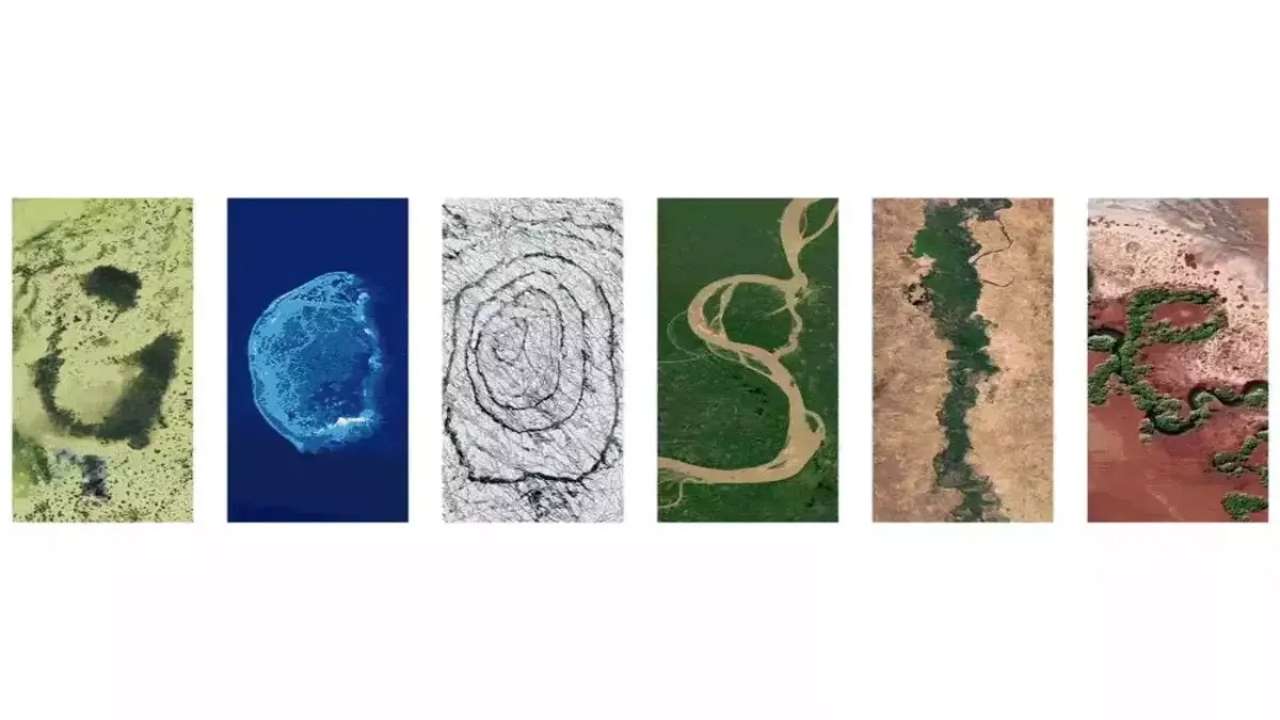
Google shared a doodle today to celebrate World Earth Day 2024, which showcased aerial photos of the planet’s biodiversity and natural beauty. Google reminded us of the importance of protecting planet earth for future generations with the help of this doodle.
The Google letters depict specific locations across the globe where people, communities, and governments work every day to help protect the planet’s natural beauty, biodiversity, and resources, according to the explanation of the annual Earth Day 2024 doodle on their website.
It said, these examples remind us that there’s much more to do to address the climate crisis and biodiversity loss, but also offer the promise of hope and optimism.
The islands of Turks and Caicos are represented by the letter “G.” The islands’ conservation efforts are concentrated on protecting important regions for biodiversity and addressing persistent environmental problems.
The largest reef in the southern Gulf of Mexico and a UNESCO biosphere reserve, Scorpion Reef National Park, is represented by the letter “O” in the Mexican flag.
The letter “O” features Iceland’s Vatnajokull National Park, which was designated as a national park in 2008 following decades of advocacy. The ecology within and surrounding the biggest glacier in Europe is safeguarded by this UNESCO World Heritage Site.
The letter “G” has the Jau National Park in Brazil on it. It is a UNESCO World Heritage Site and one of the biggest forest reserves in South America.
The Great Green Wall of Nigeria is represented by the letter “L,” and the Pilbara Islands Nature Reserves of Australia are represented by the letter “E.”
Meanwhile, Earth Day is a worldwide event that promotes protection of the environment every year. April 22 serves as a reminder of the importance of conservation efforts and sustainable practices to guarantee a healthier world and a brighter future.
The occasion inspires people across the world to come together and take action to protect the environment, strengthening our bonds with nature and promoting good change.
Latest world news
Bigg Boss 14 contestant Rahul Vaidya struggles walking in knee deep water, compares Dubai rains with Mumbai floods
Singer and TV personality Rahul Vaidya was recently stranded in the Dubai rains.

Rahul Vaidya, who was in Dubai ahead of his show which was scheduled to take place today, left the country due to heavy rains and reached Kolkata. The artist shared on social media his encounters in the UAE city, including challenges like walking through knee-deep water. Rahul provided an update regarding the heavy rainfall in Dubai on his Instagram profile.
The Bigg Boss 14 contestant revealed that he was in Kolkata and prepared to do an evening performance. Recalling the terrifying period he went through, Vaidya said there was a lot of confusion and panic in Dubai. The situation was similar to that when heavy floods hit Mumbai in 2005.
Vaiday also posted seval other images and videos of cars that were underwater and flooded roadways. The Bigg Boss 14 contestant, who shared his ordeal, claimed that even though it had just rained for two hours, the situation was dire.
In one of the video, which went viral he can be seen struggling in walking in knee-deep water. He can be also seen holding his sneakers in one hand and with other hand he was seen managing other things.
This is the result of the two hours of rain that it had, he can be heard saying in the video. Vidya also said he dosen’t believe Dubai is accustomed to a lot of rain. Everything had stopped working, he remarked.
After taking part in the first season of the singing reality show Indian Idol, Rahul Vaidya gained widespread recognition. In addition to Bigg Boss, he took part in Khatron Ke Khiladi 11.
Meanwhile, heavy rains that triggered flooding in the UAE and Bahrain, which left 18 people dead in Oman on Sunday and Monday, have paralyzed the financial hub of the Middle East, Dubai.
A lot of incoming flights were diverted from Dubai’s international airport because of the rain. At 7:26 p.m., the busiest airport in the world for foreign visitors stopped accepting new arrivals; a gradual resumption was announced for more than two hours later.
Images of planes navigating flooded tarmacs are making the rounds on social media.
According to pictures shared on social media, the flagship malls Dubai Mall and Mall of the Emirates both experienced heavy floods, while at least one Dubai Metro station had water up to the ankles.
There were several road collapses, severe flooding in residential areas, and numerous reports of leaks from windows, doors, and roofs.
Due to the unfavourable weather, schools around the United Arab Emirates were forced to close, and as more storms are predicted, the closures are anticipated to last until Wednesday. The government of Dubai allowed its staff to work remotely till this Wednesday.
Latest world news
Dubai sky turns green during storm in UAE, video goes viral
The UAE witnessed record-breaking rainfall on Tuesday and the National Centre of Meteorology recorded 254 mm of rainfall in less than 24 hrs in the Khatm Al Shakla area in Al Ain.

1 person was killed in UAE as it witnessed heavy rainfall on Tuesday, stranding commuters, flooding roads, disrupting trains and flights and resulting in water leakage from mall ceilings. The UAE witnessed record-breaking rainfall on Tuesday and the National Centre of Meteorology recorded 254 mm of rainfall in less than 24 hrs in the Khatm Al Shakla area in Al Ain. It is being said that the rainfall was the highest documented since the start of data collection in 1949.
The heavy rainfall in UAE came days after a similar situation in neighbouring Oman, where 13 people were killed in flash floods. Many parts of Oman saw torrential rains, which caused students to be trapped in buses and swept away motorists and trapped people in their homes.
Videos from Dubai circulating on social media showed widespread waterlogging on roads in Abu Dhabi, Dubai and other important cities. This left daily commuters in cars and other vehicles struggling to get back home. Dubai metro station too was seen flooded and closed.
One such video circulating on social media shows the aerial view of the city of Dubai from the top of a building. In the video the stormy winds are seen blowing over the city of Dubai. As the storm intensifies the Dubai sky turns green and ultimately gets covered by heavy rainfall. The video has gone viral on social media with more than 1.1 million views.
Another video showed water leakage from the ceilings of shopping malls, flooding the floors and destroying goods. A video which was shot in the famous Mall of the Emirates, showed pieces of ceiling falling as the rainwater gushed inside. Videos from many outlets of the Deira City Centre mall chain showed escalators being rendered unusable. Majid Al Futtaim, the company which owns the Mall of Emirates, said that the shopping complexes have been kept open and the customers are being sent away from the flooded areas.
-

 India News23 hours ago
India News23 hours agoLandslide hits Arunachal Pradesh, highway linking Indo-China border affected
-
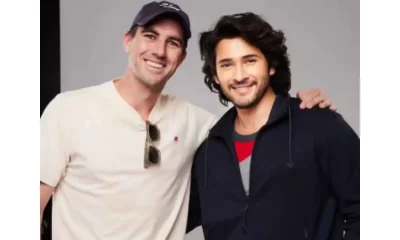
 Cricket news17 hours ago
Cricket news17 hours agoTelugu superstar Mahesh Babu meets SRH captain Pat Cummins, says it is an absolute honour
-
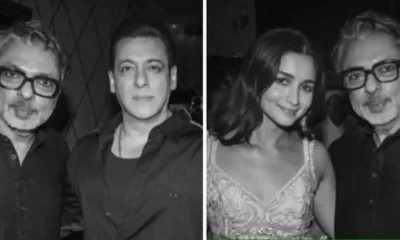
 Entertainment23 hours ago
Entertainment23 hours agoBollywood stars Salman Khan, Alia Bhatt, Rekha, Sonakshi Sinha, Aditi Rao Hydari attend Sanjay Leela Bhansali’s Heeramandi premiere
-
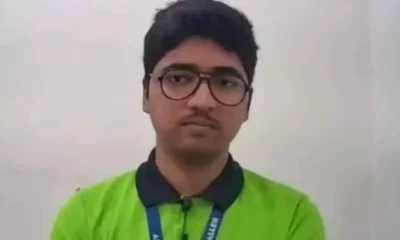
 Education22 hours ago
Education22 hours agoFarmer’s son Nilkrishna Gajare Nirmalkumar from Maharashtra scores 100 NTA score in IIT-JEE Mains 2024
-
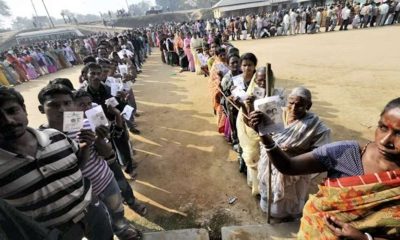
 2024 Lok Sabha Elections23 hours ago
2024 Lok Sabha Elections23 hours agoBihar: Election Commission extends voting timings for 4 Lok Sabha seats due to heatwave
-
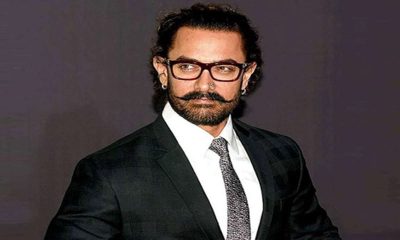
 Entertainment20 hours ago
Entertainment20 hours agoAamir Khan to begin shooting in Delhi for Sitaare Zameen Par next month
-
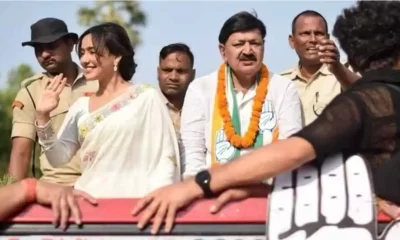
 2024 Lok Sabha Elections20 hours ago
2024 Lok Sabha Elections20 hours agoBollywood actor Neha Sharma campaigns for her father Ajit Sharma in Bhagalpur, Bihar
-
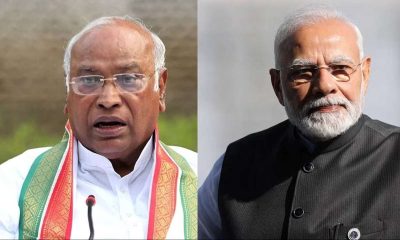
 2024 Lok Sabha Elections17 hours ago
2024 Lok Sabha Elections17 hours agoMallikarjun Kharge writes to PM Modi seeks time to explain Congress’s Nyay Patra

